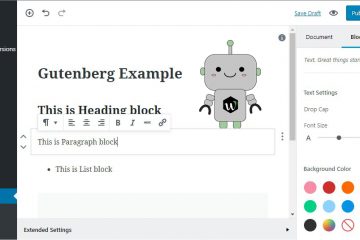There are two types of links that are commonly used on a website. First, outbound links are links that take you from one website to another. If you direct someone from your website to a completely different one, via links, this is what’s known as an outbound link.
On the opposite side of the spectrum, you have internal links. These links take you from one page on your website to another page. Internal links are great for building an encyclopedic style structure for your information-based website (think Wikipedia). This is helpful to audiences that may not know a certain word or phrase. If you have another page explaining that specific concept, you should absolutely add that link to the article.
So what’s up with outbound links and SEO?
Going even further into the topic, you have two types of links that go from your website to another and vice versa.
Inbound or Backlinks – Links from other websites to yours.
Outbound links – Links from your website to another website.
Outbound Links and SEO
While it may seem obvious why inbound links are a powerful way to boost your SEO, many are unsure as to why, or even if, they want outbound links.
A recent study conducted by marketing firm Reboot showed a positive correlation between a page’s outbound links and its rankings in search results. Reboot hypothesized that Google can determine the authority of a page or website based on the sources it links to.
When Should You Use Outbound Links
Let’s say you have a tech blog where you write information on the latest and greatest devices. If you have a section for comments, having other authoritative people post links with different solutions for common problems that your readers encounter is a great way to make your website more interactive and diverse, a well of knowledge and a reliable source.
Another example is having guest bloggers/writers of authority come and add links to their websites for on pages they wrote for your website. Some prime examples, like Kissmetrics and Moz, are resources we use for some of our information. These websites are built on guest bloggers contributing to their site. The site, in turn, makes money from the ads these posts generate; it’s a symbiotic relationship between the two entities.
The third and final reason why you would want to use outbound links is if you’re building a chain of websites for a single purpose. If you own a clothing store and you decide to branch off with different websites to fulfill different niches and you want to stay under the same umbrella conglomerate, you can do so by sending outbound and inbound links to your other sites. One reason you’d do this is to give some juice and authority from your old website to the new ones you create. This way, you form an intricate system of inbound and outbound links that work for your specific goals.
Conclusion
The only thing you should worry about is having links to and from quality websites. This means they should have a long-standing history as a reputable site. They should also be an authority in their industry. If you’re writing a blog about the news, you could site BBC, Washington Post, or any of the major news outlets. If you’re discussing a business topic, resources like the Wall Street Journal would be good too. Less obvious examples would be popular bloggers that have built a reputation over the years, like popular jewelry blogger Gem Gossip for your fashion article.
You can also avoid the negative impacts of outbound links on your site by slapping canonical tags on your outbound links, telling search engines not to follow or index them when they scan your site. This can be a bit more work, but it gives your website more depth, especially if it’s information-based.


